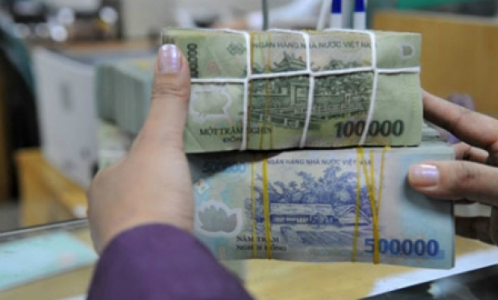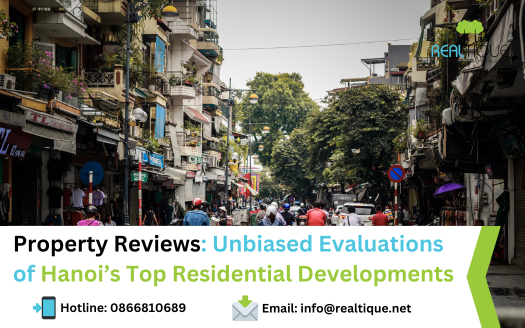Difficulty Flipping Real Estate When Banks Tighten Loans
Loan Interest Rate Increases, Preferential Conditions Decrease are The Banks’ New Moves Recently
Recently, the State Bank of Vietnam revised Circular 36 in the direction of tightening credit in real estate, in which the two terms that have the most impact are the ratio of short-term capital for medium and long-term loans from 60% to 40%, will limit the real estate loans.
With the risk factor for loans related to real estate increasing from 150% to 250%, the bank must maintain a high minimum capital, so of course there is not much capital left for real estate loans like formerly.
The leader of the State Bank of Vietnam branch in Ho Chi Minh City also said many banks are tightening real estate loans in areas experiencing a strong land fever such as Can Gio, Cu Chi, Hoc Mon, District 9, Binh Chanh…
A Vietcombank leader said in recent times, real estate in some places has been hot and easy to fall into bubble, especially in the high-end real estate segment. Limiting credit in the real estate sector at this time is reasonable and necessary for banks.
Compared to about a year ago, capital into the city’s real estate has increased by more than 15,000 Billion Dong (~USD 643 Million), in absolute terms.
General Director of HSBC Vietnam – Pham Hong Hai once made an assessment that in order to develop sustainably, banks need to promote the service segment instead of just focusing on credit as at present. In addition, according to him, banks also need to pay attention to credit capital flows into risky channels such as real estate, securities and BOT.

Interest rates on real estate loans have increased. Photo: PV
Impact of Real Estate Credit Tightening on Borrowers
The bank is also a business unit, in addition to supporting the state in economic regulation, the ultimate purpose is still profit.
In fact, real estate lending is still the most profitable business of banks, lending interest rates are up to 10-12%/year (excluding the first one or two years of low promotional interest to get customers), not to mention other revenues such as life insurance sales, transaction fees, card opening…
Therefore, it is not easy for banks to ignore this most profitable lending segment, but:
-
They will choose more cautiously to lend
-
The appraisal process for loan purposes, loan repayment income and asset valuation will be stricter, reducing risks for both the bank and the real estate market
Borrowers who have a need to buy houses, build houses to improve their lives, or invest in medium and long-term, have secured assets and good income, are not too worried about the roadmap to squeeze real estate loan capital. Because this is still the priority area for lending to solve the housing needs of the people as well as ensure the bank’s business profits.
For borrowers who buy houses in projects developed by developers, if the developer has a clean, legal, and reputable land fund in the market, the project is always on the list of priority banks to get a loan. However, it should be noted that the developer can only support two factors: “the purpose of the loan is to buy a house” and “the property secured by the house itself”. It is still the responsibility of the home buyer to prove that the income cash flow is sufficient to repay the bank loan. If the income cannot guarantee the repayment of the loan, the guarantor bank accompanying the project will still refuse to lend.
Even in many cases, banks have agreed to lend and have disbursed several times, but after re-appraisal, customers whose income is affected are at risk of not being able to repay the loan according to the “credit room” approved, the bank still stops disbursing the rest.
Due to this unknown fact, many conflicts occurred between the buyers and the developers when the buyers were not allowed to disburse the loan to close the next payments to the developers.
For those who borrow money to buy land for speculation, to subdivide plots to sell plots, buy agricultural land everywhere, flipping for short-term trading, have been and will face difficulties when needing a bank loan to buy a large land fund.
At the same time, they also have more difficulty when they need to sell because it is also difficult for people who buy back divided land to get a bank loan. Thereby, the real estate investment market will be healthier and more stable. Real estate investors are required to use idle money (or loans by other means but with a much smaller proportion), and invest in the medium – long term (3-10 years) but cannot flip short-term, pushed prices up continuously like the past three years.
For large real estate companies, the suspension of disbursement of real estate investment loans by some banks will force these businesses to improve their financial capacity, reconsider the proportion of equity and loan capital when developing project implementation, limiting the situation of overextending financial capacity.
In fact, many banks have done this and some developers have been restricted in lending or only partially disbursed, forcing them to find additional capital in bonds. But with the recent scandal of canceling 10,000 Billion Dong (~USD 427 Millin) of Tan Hoang Minh bonds, this direction of their fund attraction will also face difficulties in the near future.
Realtique Co., LTD
+84866810689 (Whatsapp/Viber/Zalo/Wechat)








